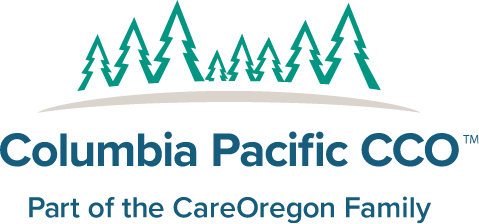The housing crisis is less visible in rural Northwest Oregon than it is in some large metro areas, but it’s no less acute.
Even before the pandemic worsened inequities in our region, Clatsop County had the highest per capita rate of houselessness of all Oregon counties, with more than 17 houseless people for every 1,000 residents, according to a 2019 study commissioned by the county and several other municipalities. Tillamook County had the next-highest per capita rate, with nearly nine houseless people for every 1,000 residents. By comparison, on a statewide basis there were 3.4 houseless people for every 1,000 residents.
How did we get here? In Clatsop County, the proliferation of short-term vacation rentals reduced an already constrained supply of housing, pushing up rents for what is left on the market. And throughout our region, abundant wetlands and floodplain areas result in a scarcity of centrally located parcels that are suitable for development.
“The natural environment is one of the things that makes living in these counties wonderful, but it also makes it more challenging to build,” said Elissa Gertler, Executive Director of the Northwest Oregon Housing Authority, which works to provide safe, affordable housing for low-income residents of Clatsop, Columbia and Tillamook counties.
Fortunately, we are seeing a growing level of grassroots activity surrounding affordable housing. More than 200 people turned out for the December 2022 North Coast Housing Summit, which we co-sponsored. They included government officials, developers, financiers, and others who play a direct role in creating affordable housing.
“The momentum around housing solutions has continued to grow now that people know about our housing work. We’re involved in a lot of local conversations about affordable housing,” said Leslie Ford, Columbia Pacific’s Housing Strategy and Development Advisor.
Local organizations are not only talking about the issue but making substantial financial commitments along with us.
Over the last two years, three of Clatsop County's largest health care providers (Providence Seaside Hospital, Columbia Memorial Hospital and Clatsop Behavioral Healthcare) have collectively dedicated nearly $2.9 million to an affordable housing fund. So far, they’ve awarded grants totaling nearly $1.9 million, including $1 million (split between two grants) to projects that will create affordable housing in Astoria for seniors, people with disabilities and others.
All three organizations participate in a risk-sharing agreement with Columbia Pacific and have dedicated most of their earnings from that agreement to their housing fund. The agreement is one way Columbia Pacific is working with partners to improve community health. Earnings from the agreement are the result of cost savings from effective care management (like care coordination services) that results in fewer hospital visits and better health.
We’ve supported the housing work of our risk-share partners by contributing our time and expertise. We use our housing investments platform to vet applications for projects in Clatsop County and make grant recommendations to our risk-share partners.
“Affordable housing not only helps to improve the quality of life and health of our members but benefits everyone in the communities we serve,” said Ford. “By supporting our risk-share partners and investing through our Regional Housing Impact Fund, we’re helping to make our communities stronger and healthier.”
The housing crisis has hit our region in a multitude of ways. Among other things, it has made it harder for employers, including health care providers, to recruit workers from outside the region.
Pam Cooper, Director of Finance for Providence Seaside Hospital, says the hospital has difficulty recruiting doctors, nurses and other health care providers because the few rental homes that are available locally are usually too expensive for these professionals. It is even harder for the hospital to attract lower-wage workers, like environmental and food-service workers, from outside the region.
“Health care workers often have student loans, which makes it very difficult for them to afford rental homes in our area,” said Cooper, who has cultivated relationships with local landlords in order to provide transitional housing, when necessary, to newly hired doctors, therapists, nurses and critical temporary staff.
Little by little, the situation on the ground is improving. In June 2022, we celebrated the groundbreaking of Trillium House at Chelsea Gardens, a 42-unit affordable apartment project in Warrenton. In 2020, our Regional Housing Impact Fund awarded a $400,000 grant to the project, which will be owned and operated by the Northwest Oregon Housing Authority, in partnership with Northwest Housing Alternatives. The grant was the first ever from our housing fund.
When it opens in 2023, Trillium House at Chelsea Gardens will offer one-, two- and three-bedroom apartments that are priced to be affordable to people making less than 60 percent of area median income. Five units will be set aside for clients of Clatsop Behavioral Healthcare, and the agency will provide on-site support to those clients. In addition, Clatsop Community Action will support all residents on an as-needed basis, helping them to avoid eviction, access food and energy assistance and address other needs. Six units will also be set aside for agricultural workers.
“Trillium House at Chelsea Gardens represents the very best of our region. It demonstrates how we pull together to solve our biggest challenges,” said Gertler of the Northwest Oregon Housing Authority.

















